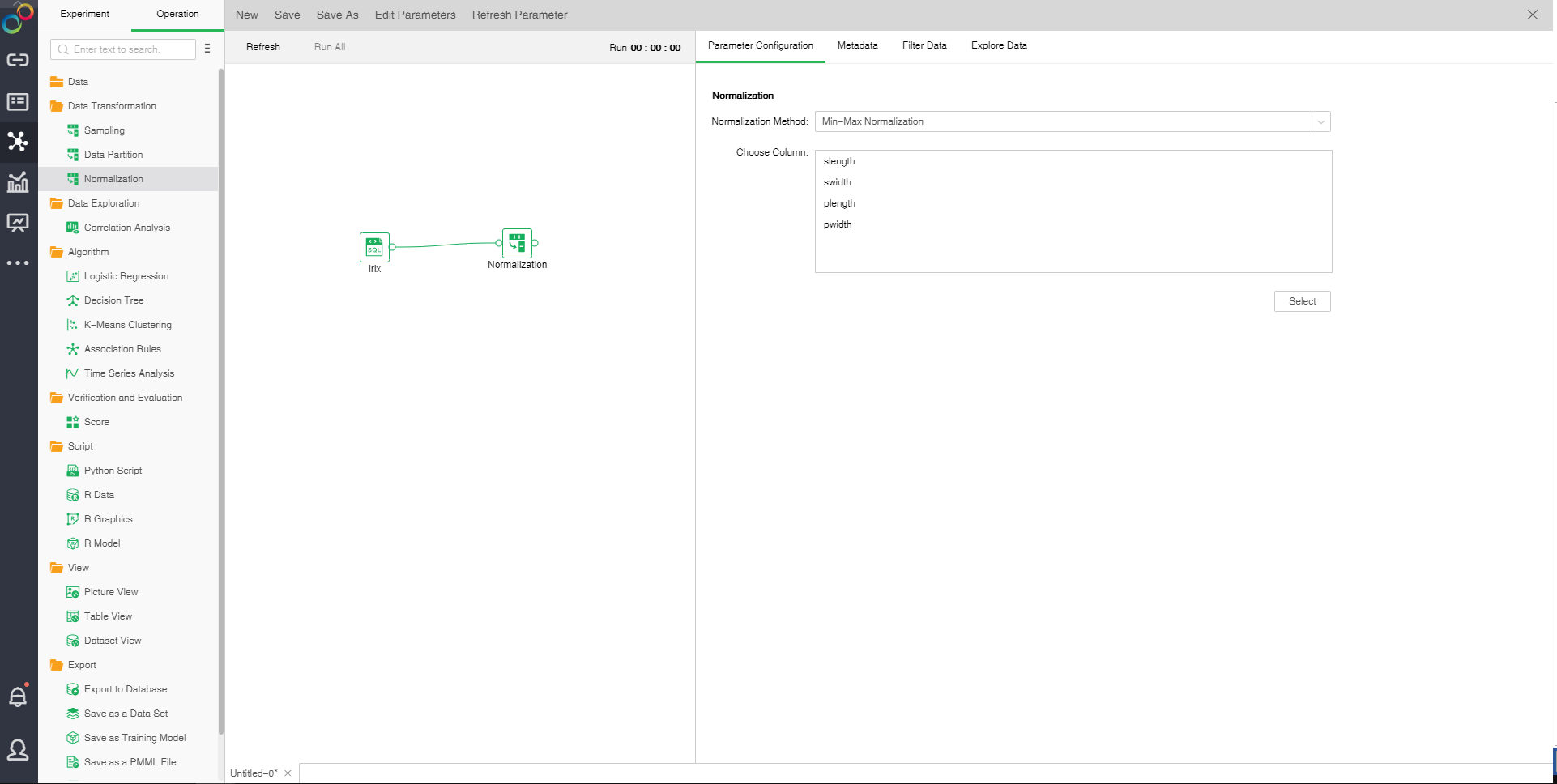|
<< Click to Display Table of Contents >> Normalization |
  
|
|
<< Click to Display Table of Contents >> Normalization |
  
|
Data normalization is to scale the data proportionally to make it fall into a small specific range. It is often used in some comparison and evaluation index processing. Remove unit limits of data. Convert it into a dimensionless pure number to facilitate the comparison and weighting of indexes of different units or orders of magnitude.
Drag a data set and normalization node to the edit area. Connect the data set and normalization node.

❖Standardized configuration method
After adding the standardization node to the experiment, you can set the standardization of the data through the "Parameter Configuration" page on the right side.
[Normalization Method] There are two normalization methods: min-max normalization and Z-score normalization. Min-max normalization refers to linear transformation of original data to make the results fall into the range of [0,1]. The data treated by the Z-score normalization method conforms to standard normal distribution with zero mean of 0 and unit variance of 1.
[Choose Column] Data type column needs to be normalized.
After setting up the Normalization, you can view the partitioned metadata, filter the data, and explore the data. For details, see the section Add Data .
❖Standardized node renaming
In the right-click menu of the standardization node, select "Rename" to rename the node.
❖Delete the standard node
In the right-click menu of the standardization node, select “Delete??or click the delete key on the keyboard to delete the input and output connections of nodes and nodes.
❖Refresh the standardized node
In the right-click menu of the standardization node, select "Refresh" to update the synchronization data or parameter information.